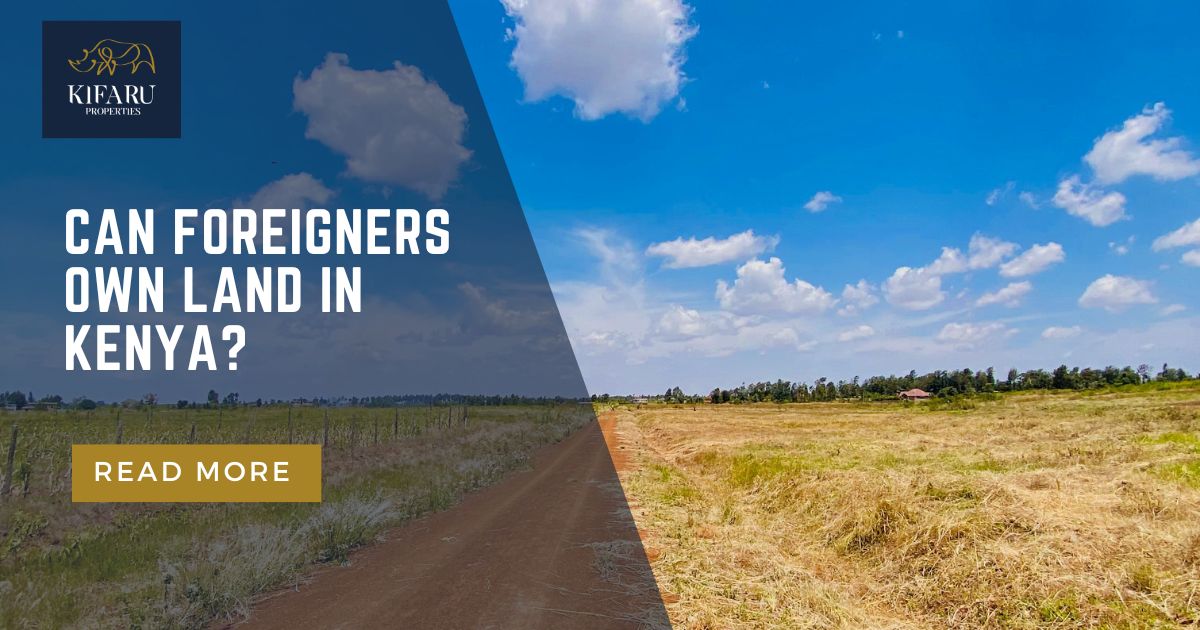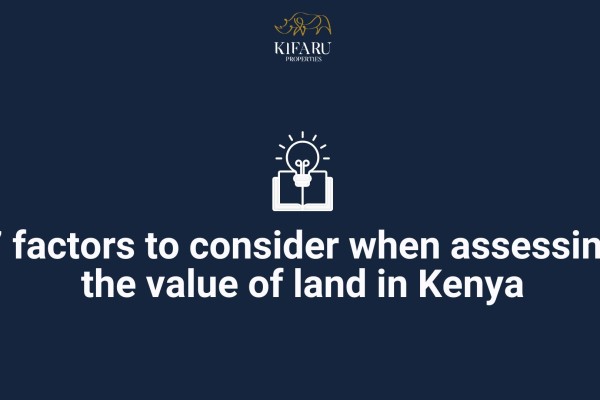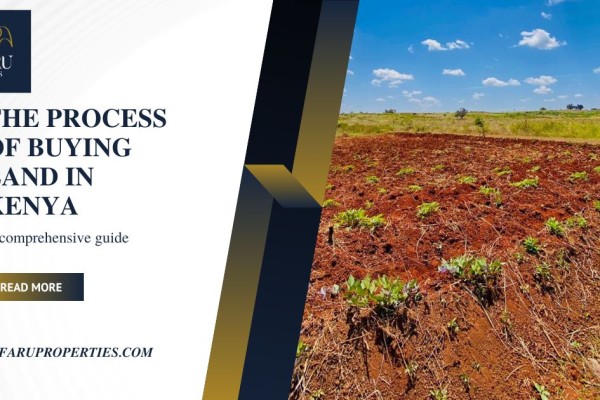- Aug 28, 2024
- Kifaru Meadows
- 252

Legal Framework Governing Land Ownership
The Kenyan Constitution and various land laws govern land ownership in the country. The most significant piece of legislation concerning land ownership by foreigners is the Land Control Act and the Land Registration Act. According to these laws, foreigners can own land in Kenya, but only under specific conditions.
Leasehold Tenure
Foreigners are not permitted to own freehold land in Kenya. Instead, they can only acquire land on a leasehold basis. The maximum lease period allowed for foreigners is 99 years. This means that while foreigners cannot hold the land indefinitely, they can lease it for up to 99 years, after which the lease can potentially be renewed. Leasehold ownership grants the lessee the right to use the land and develop it within the lease period.
Types of Land That Can Be Purchased
Foreigners are allowed to buy leasehold land in various categories, including:
Urban Land: This is land within cities and towns. Urban land is usually used for residential, commercial, or industrial purposes.
Agricultural Land: Under the Land Control Act, foreigners cannot directly purchase agricultural land, which is considered a form of freehold land. However, there are ways to navigate this restriction, such as acquiring shares in a company that owns agricultural land or through a partnership with Kenyan citizens.
Procedure for Buying Land
The process of purchasing land in Kenya as a foreigner involves several steps:
Land Search and Due Diligence: Before making any purchase, it is crucial to conduct a land search at the Ministry of Lands to confirm the ownership, status, and any encumbrances on the property. This ensures that the land is not disputed and that the seller has the legal right to sell it.
Land Valuation: It is advisable to have the land valued by a qualified valuer to determine its market value.
Negotiating the Sale Agreement: A sale agreement is drafted once the land search and valuation are completed. This agreement outlines the terms of the sale, including the purchase price, payment schedule, and conditions precedent.
Payment of Stamp Duty: After signing the sale agreement, the buyer must pay stamp duty, which is a tax levied on property transactions. The rate of stamp duty varies depending on the location of the land.
Transfer of Ownership: Upon payment of the full purchase price and stamp duty, the land's ownership is transferred to the buyer. The buyer is then issued with a lease certificate or title deed reflecting their leasehold interest in the land.
Challenges and Considerations
Foreigners looking to buy land in Kenya should be aware of potential challenges, including:
Complex Legal Procedures: The legal process of acquiring land in Kenya can be complex, especially for those unfamiliar with local laws. Engaging a qualified lawyer with experience in land transactions is highly recommended.
Regulatory Changes: Kenya’s land laws have undergone significant changes over the years, and more amendments may be made in the future. It is important to stay informed about any legal changes that could impact land ownership.
Cultural and Social Considerations: Land is a sensitive issue in some areas, especially in rural regions. It is important to respect local customs and traditions when acquiring land, and to ensure that all transactions are conducted transparently and fairly.
Conclusion
While foreigners can buy land in Kenya, it is essential to understand the legal framework, restrictions, and procedures involved. By adhering to these guidelines and seeking professional advice, foreigners can successfully invest in Kenyan land and enjoy the many benefits that come with it.




